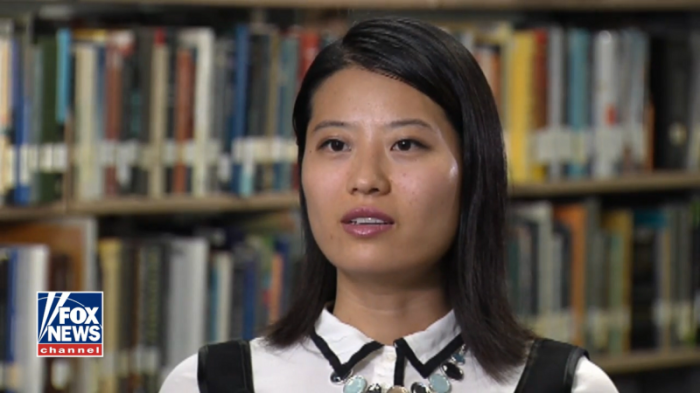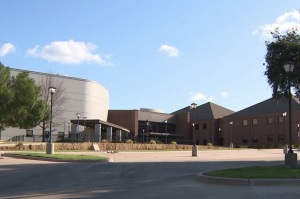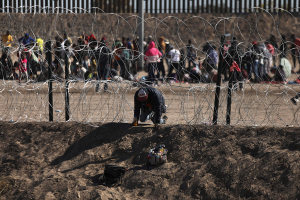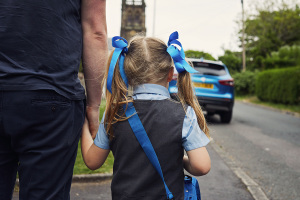Children Forced Into Hard Labor Inside North Korean 'Orphanage Shelters,' Defector Says

A North Korean defector has shared what life is like for children sent to horrific, overcrowded "orphanage shelters" while their parents are imprisoned by the authoritarian Kim regime.
Grace Jo, a 26-year-old defector who came to the United States as a refugee with her mother and sister in 2008 and now helps lead an organization that facilitates the escape and rescue of victimized North Koreans, shared her experiences of being imprisoned as a child after being caught twice with her family while trying to flee the oppresive nation.
Jo told The Christian Post in a recent interview that although she doesn't recall ever being tortured by the government, she does remember what it was like when she, her mother and sister had to do hard labor for the Kim regime — whether on the construction site or on the farm.
She explained that on two separate occasions while her mother was imprisoned, she was sent to orphanage shelters.
Jo, whose father, two brothers and grandmother passed away from starvation, said she was sent to an orphanage shelter with her sister when she was about 11 and was also sent to another orphanage shelter by herself when she was about 14.
However, Jo warned that these shelters are basically "labor prison for kids."
In these camps, kids are housed in different rooms based on age and gender. However, the rooms are so crowded that there is no room for the kids to move when sleeping at night.
"In a room, we had about 45 or 50 kids but it was really small. When we sleep, we couldn't move. If one person tries to move to other side, everybody has to move. It was very difficult," Jo recalled. "Of course, we didn't have any extra clothes and we didn't have any extra shoes. We didn't even have enough water to wash ourselves."
Jo stated that children in the shelters were assigned to do different types of work that would benefit the North Korean regime.
She recalled that when she and her older sister were sent to an orphanage shelter for the first time in 2001, her sister and the older kids were forced to do work on a farm while she and the younger kids were forced to shuck corn.
"We were assigned to work on farms and mountains. Older kids, they had to work all day long. It's kind of like a labor prison for kids," Jo stressed. "It's not like a fancy orphanage shelter like in America or South Korea. Basically, how it works is like they contain children forcefully and then they will assign healthy kids to farms and labor areas. So they force them into labor for the government and for their needs."
"For my sister, she was 16 years old at the time. So she had to work since 7 a.m. to like 5:30 p.m. in the farm. Then for me, I was 11 or 12 years old. I had to go with other young kids and follow two ladies to the place they put the dried corn."
According to Jo, there are orphanage shelters in every major North Korean city.
Jo also shared what it was like being detained for three weeks inside of a North Korean prison, where she and her mother were forced to help the North Korean government build an extension on a building.
She said that for three weeks straight, she, her mother and other prisoners were forced to work about eight hours per day for five days a week.
"We had to clean the dirty stuff from the ground and we had to move cement blocks for buildings and move the blocks with our bare hands. We didn't have any tools, so we had to work with our hands," Jo explained. "My sister was sick at the time so she was in a prison cell."
Jo and her family were aided by a South Korean missionary living in the United States who helped facilitate the family's escape into China for the final time in 2006.
"In 2006, when we crossed the border to China, we paid money and bribed officers and got rescued," Jo said. "Two months later, we got a call and were told all those high officials got in trouble and the [North Korean] government is looking for us and they are sending people to look for us in Yanbian area. So we were not safe in Yanbian area."
"We took a van and we drove to Beijing and we sent our story to [the United Nations]," Jo added. "The U.N. and U.S. government, they got our letter and approved us as legal refugees."
From 2006 to 2008, Jo and her family lived under U.N. protection until they were finally able to come to the U.S. Jo became a U.S. citizen in 2013.
Jo now works as vice president of the nonprofit organization NKinUSA, an advocacy group founded and run by North Korean refugees resettled in the U.S.
The organization, in part, exists to facilitate the safe passage of defectors and to provide them with resettlement assistance in other nations.
Jo will be sharing her experiences and the plight of North Korean Christians when she speaks at the 4th Annual Night of Prayer for the Persecuted Church that will be held at Chinese Community Church in Washington, D.C., on Nov. 18. The free event will be hosted and sponsored by the nonprofit organization One Body and the Christian persecution advocacy group International Christian Concern.
Jo will join persecuted Christians from countries like Iran, Pakistan and Cuba, who will also share their testimonies of persecution. North Korea is ranked as the worst country in the world for Christian persecution, according to Open Doors USA's 2017 World Watch List.
"[I'm] hoping that I can show the suffering and challenges that Christians are facing in North Korea," Jo told CP about the event. "I think this is an opportunity that I can share as a Christian survivor and also a North Korean who saw Christians get forcefully tortured and the different treatments from the North Korean government."




























